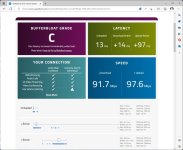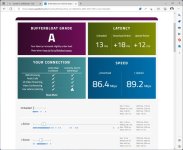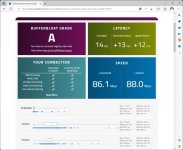D
Deleted member 66500
Guest
Thanks for talking sense, and its a problem with quite a few (many?) voluble posters in this forum - they always express opinions biased by their personal beliefs/preferences, rather than facts and measured guidance. It doesn't affect me, but it can be detrimental to new members who aren't familiar with the nitty-gritties. There was a recent thread about RP-AX56 AImesh node where such rather biased opinions were expressed as if expert advise (even though RMerlin had exactly advised against such personal biases expressed in that thread)Not really. You seem to think anything under 300.00 bucks is junk. News flash for you 90% of people will never spend that for a router it's simply not necessary. Another news flash 90% of Asus router owners never heard of RMerlin. Just stop being negative about lower priced routers there is nothing wrong with them they get the job done period. I seem to remember Tim Higgens warning you about your attitude on these forums it's getting old.




